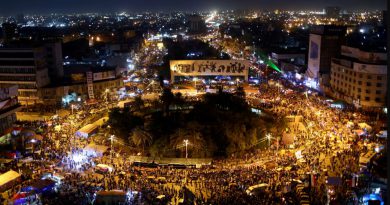Truth About Saudi Arabia’s Al-Jasser: How Media Mistook a Spy for a Journalist
By painting convicted criminals as victims and disregarding facts provided by official channels, some Western outlets compromise their own credibility
A shocking revelation has emerged debunking a high-profile claim by Paris-based “Reporters Without Borders” (RSF), which falsely portrayed a convicted Saudi terrorist as a journalist. According to direct and well-informed Saudi sources, the man in question, Turki Al-Jasser, was never associated with journalism but was in fact a former employee of a sensitive government agency who betrayed the Kingdom by working with foreign intelligence services.
Saudi political analyst and researcher Salman Al-Ansari, known for his incisive commentary on regional geopolitics, took to social media to expose the misleading narrative pushed by RSF and amplified by several Western platforms. In what he called a “gross failure of fact-checking,” Al-Ansari accused the watchdog of falling victim to naïve political manipulation and amateur activism disguised as journalism.
“It’s unacceptable for any credible organization to issue a statement without verifying the most basic facts,” Al-Ansari said. “Turki Al-Jasser was never a journalist—he was a traitor, and his betrayal came at a high cost to national security.”
Who Was Turki Al-Jasser? Not a Journalist, But a Mole
Contrary to the fabricated image of Al-Jasser as a brave dissident journalist, Saudi authorities confirm he was a government insider, entrusted with access to classified information. After serving a four-year prison term—during which he was treated according to Saudi legal procedures—Al-Jasser was released and given a chance to reintegrate into society.
But instead of reform, he resumed subversive activities—this time with far more dangerous intent. He was reportedly recruited by a foreign intelligence agent and became involved in a network dedicated to undermining Saudi national security. His tasks included espionage, coordination with terrorist operatives, and strategic disinformation campaigns.
He was convicted of high treason, conspiracy, and terrorism—charges that would result in the death penalty in many countries. According to legal experts, his offenses violate both Saudi and international law, especially due to their cross-border implications and intent to destabilize a sovereign state.
Western Media’s Double Standards
The saga has reignited longstanding criticism about the selective outrage and politicized narratives often adopted by Western media and rights organizations. Analysts note that this is not the first time foreign platforms have romanticized individuals who turned out to be security threats.
Western media ignored Saudi warnings about Osama bin Laden in the 1990s, Al-Ansari noted. “They glorified Saudi fugitives like Talib Al-Abdulmohsen, who turned out to be a terrorist and murdered innocents in Germany. The same mistake is being repeated with Al-Jasser.”
By painting convicted criminals as victims and disregarding facts provided by official channels, some Western outlets compromise their own credibility, while simultaneously threatening international cooperation on counterterrorism.
A Broader Disinformation Campaign?
Experts warn that the Al-Jasser case is likely part of a coordinated disinformation effort aimed at discrediting Saudi Arabia on the global stage. The use of platforms like RSF—often relied upon by media institutions for credibility—adds an alarming dimension to the manipulation of human rights narratives.
“This isn’t about free speech or journalism—it’s about weaponizing misinformation,” Al-Ansari said. “Saudi Arabia will not allow acts of treason to be disguised as activism.”
The Saudi government has reiterated that it remains committed to the rule of law and to transparency. However, it emphasized that national security is non-negotiable, and no country—regardless of public relations optics—would tolerate espionage and terror conducted from within its ranks.
Journalism Must Not Shield Treason
As this case unfolds, it serves as a cautionary tale about the consequences of blindly adopting unverified claims under the guise of advocacy. It also poses a serious question to rights organizations: Where is the line between defending freedom and defending a threat?
For Saudi Arabia and its allies in the fight against terrorism, the line is clear—and so is the truth about Turki Al-Jasser.



